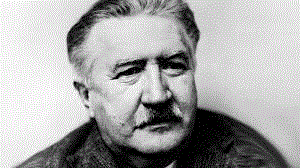Josef Suk (1874-1935) was a Czech composer and violinist whose works are celebrated for their emotional depth, lyricism, and reflection of the Czech musical tradition. As a student of Antonín Dvořák and a member of the Czech Quartet, Suk’s compositions blend Romanticism with elements of Modernism. Below, we explore five of his most remarkable compositions, highlighting why they stand out in his oeuvre.
1. Asrael Symphony (Op. 27, 1906)
The Asrael Symphony is arguably Suk’s magnum opus and one of the most powerful symphonies in the late-Romantic repertoire. Written in memory of his mentor, Antonín Dvořák, and later dedicated to his wife, Otilie Dvořáková (Dvořák’s daughter), who tragically passed away shortly after her father, the symphony is a profound meditation on death, loss, and redemption. The symphony’s name, Asrael, refers to the angel of death in Islamic and Jewish traditions, giving it a deeply spiritual resonance. Structured in five movements, the work moves from somber introspection to a more transcendent sense of peace, making it one of the most emotionally compelling symphonies of the 20th century.
2. Serenade for Strings in E-flat major (Op. 6, 1892)
Suk’s Serenade for Strings is a beloved early work, filled with youthful optimism and melodic charm. Composed when Suk was only 18 years old, the serenade is marked by its lyrical beauty and bright, uplifting mood, drawing inspiration from his teacher Dvořák’s own Serenade for Strings. The piece features four movements: Andante con moto, Allegro ma non troppo e grazioso, Adagio, and Allegro giocoso, ma non troppo presto. Its radiant harmonies, light textures, and rhythmic vitality make it a favorite in the string orchestra repertoire and a wonderful introduction to Suk’s music.
3. Radúz and Mahulena (Op. 13, 1898)
Inspired by the Czech fairy tale of the same name, Radúz and Mahulena is an orchestral suite drawn from Suk’s incidental music for the play by Julius Zeyer. The story of the tragic love between Prince Radúz and Princess Mahulena is richly conveyed through Suk’s lush orchestration and haunting melodies. The Love Scene from the suite is especially famous for its deep emotional intensity and sweeping romanticism. The work captures the mythic, folk-like quality of the original tale, while Suk’s music elevates it with a timeless, almost otherworldly beauty.
4. Pohádka (A Fairy Tale, Op. 16, 1901)
Pohádka is another example of Suk’s gift for storytelling through music. Originally composed as incidental music for a play, it was later transformed into a symphonic suite. Like Radúz and Mahulena, Pohádka is rooted in Slavic mythology, specifically the tale of a prince who embarks on a quest to save a cursed princess. Suk’s orchestration here is colorful and imaginative, evoking both the magical and the dramatic elements of the story. The suite’s thematic material is rich with character, balancing lightness and tension, making it a fine example of Suk’s evocative style.
5. Fantastické scherzo (Fantastic Scherzo, Op. 25, 1903)
The Fantastic Scherzo is a lively and energetic work that showcases Suk’s inventive orchestration and playful melodic ideas. This piece offers a lighter mood than some of his more introspective compositions but is no less masterful in its execution. The scherzo is filled with vibrant rhythms, folk-like melodies, and a joyful spirit, creating a dazzling display of Suk’s ability to balance complexity with accessibility. It is a brilliant orchestral showcase, standing out for its brilliance and technical demands on the performers.
Conclusion
Josef Suk’s compositions reflect the emotional depth and expressive power of a composer deeply connected to his Czech roots, while also pushing the boundaries of Romantic music. His works are steeped in personal emotion, often inspired by both tragedy and love, and they remain some of the most poignant and enduring pieces in the late-Romantic and early-Modernist periods. Whether you are exploring his heart-wrenching Asrael Symphony or the charming Serenade for Strings, Suk’s music offers an unforgettable journey through beauty, sorrow, and the sublime.
Explore Josef Suk’s masterpieces and discover the emotional depth of one of Czech music’s most treasured composers.


Comments are closed